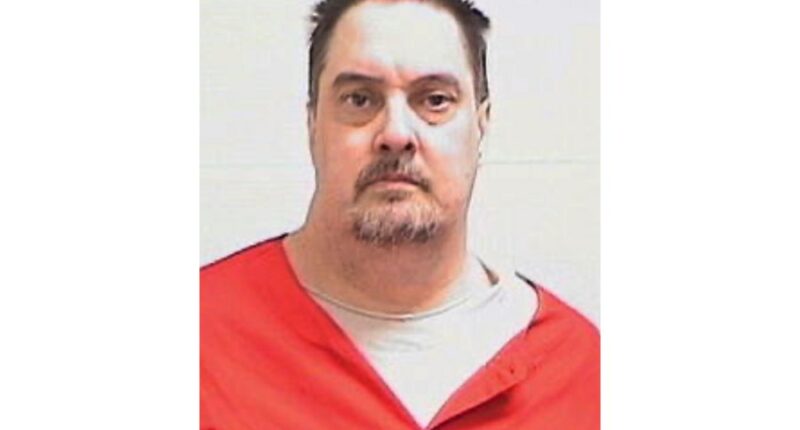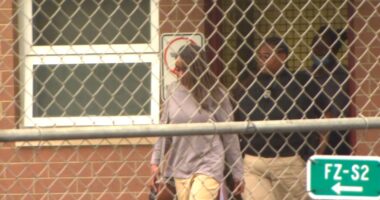Share this @internewscast.com

An Indiana man found guilty of the 2001 rape and murder of a teen girl faced execution by lethal injection early Friday, marking the state’s third execution since reinstating capital punishment last year.
Roy Lee Ward, 53, was scheduled to be put to death before sunrise at the Indiana State Prison in Michigan City.
He was sentenced to death for the crime against 15-year-old Stacy Payne, a tragic event that shocked the small town of Dale, home to about 1,500 residents.
Attorneys said Ward has exhausted his legal options after many court battles.
“He’s very remorseful about this horrible crime,” said his attorney Joanna Green.
Ward’s execution is taking place amidst scrutiny regarding Indiana’s use of pentobarbital. After a 15-year hiatus, the state resumed executions last year, having secured the lethal injection drugs previously unavailable.
The Indiana Department of Correction confirmed they acquired a sufficient supply of pentobarbital to meet execution protocols. However, Ward’s lawyers expressed concerns about the drug’s use, particularly regarding how it was stored, including temperature management.
Ward’s execution is one of eight scheduled for October across seven different states, as reported by the Death Penalty Information Center.
Indiana is among 27 states with death penalty statutes, and it is one of only two states that do not allow media witnesses. Ward’s witness list includes his legal and spiritual advisors.
His case has trailed through the courts for more than 20 years.
Ward was found guilty of the crimes in 2002 and sentenced to death. But after the Indiana Supreme Court overturned the conviction and ordered a new trial, he pleaded guilty in 2007. A decade later, the U.S. Supreme Court declined to hear the case. In 2019, he sued Indiana seeking to stop all pending executions.
Last month, the Indiana Supreme Court declined to stay the execution and Gov. Mike Braun rejected Ward’s clemency bid.
The victim’s family members said they were ready for justice to be carried out, remembering Payne as an honor student and cheerleader with an influence beyond her short life.
“Now our family gatherings are no longer whole, holidays still empty. Birthdays are sad reminders of what we lost,” her mother Julie Wininger told the parole board last month. “Our family has endured emotional devastation.”
Ward, who declined interview requests through his attorneys, has said little publicly. He skipped a parole board interview for his clemency bid, saying he didn’t want to force the victim’s family travel to the prison and he can’t always say what he means.
Attorneys say Ward was recently diagnosed with autism spectrum disorder, which affects his ability to communicate.
One of his spiritual advisers, Deacon Brian Nosbusch, said Ward has thought deeply about his actions.
“He knows he did it,” Nosbusch said. “He knows it was horrendous.”
















